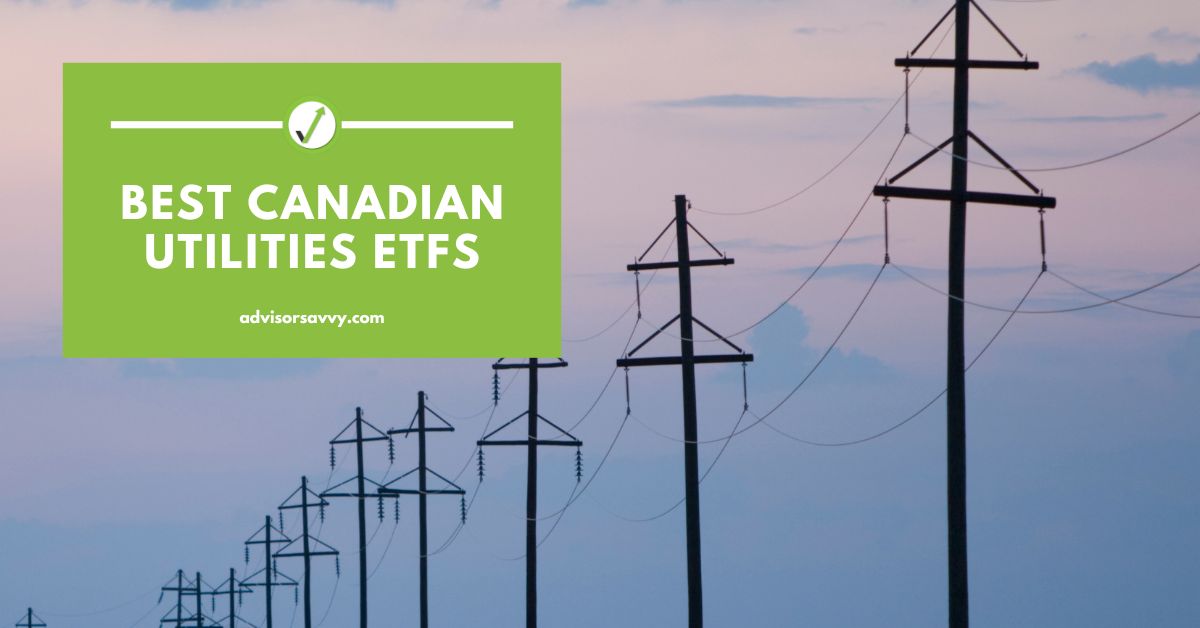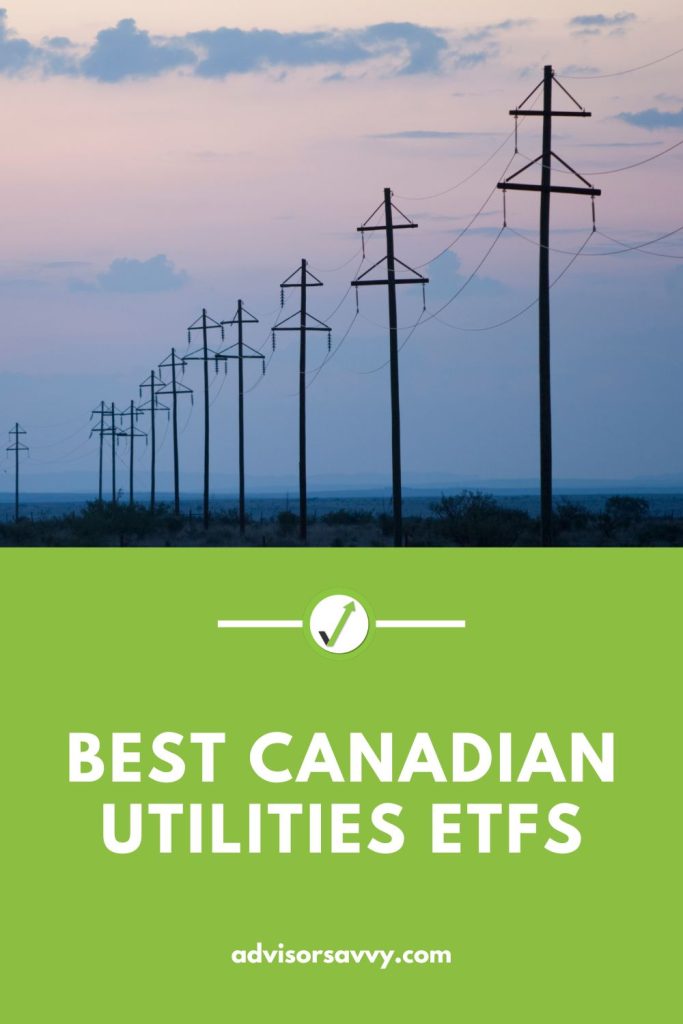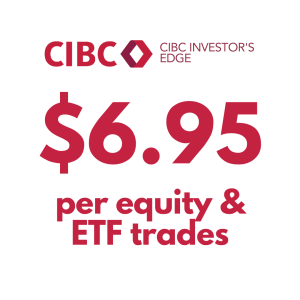
If you are looking to invest in a utility company, but don’t know which to choose, investing in Canadian utilities ETFs is a great decision. Utility companies are businesses that provide necessities like water, gas, telecommunication, and electricity. These companies are known to be secure and reliable due to the regular, consistent demand for the services they offer. Investing in Canadian utilities ETFs will allow you to track the total amount of all returns of the top utility companies in Canada. Let’s discover some of the best Canadian utilities ETFs to determine the best fit for your investment goals.

Table of contents
What is a Canadian Utilities ETF?
Utility ETFs are business shares in companies that provide services like natural gas, electricity, water, transportation services, telecommunications, and more. Canadian utilities ETFs are great income sources for any type of investment, financial account, or savings plan. While these utility ETFs are a steady source of income, some utilities are also known for producing growth opportunities. In such cases, different kinds of utilities diversify into new markets or geographic regions, thereby creating value for the investor.
CIBC Investor’s Line Offer
Up to $6.95 per online stock or ETF trade. Plus, there’s no minimum account balance.
Investors may be able to achieve their goals with a portfolio full of individually owned stocks. However, the benefit of investing in ETFs, as opposed to individual stocks, is gaining access to a wider range of assets and a more diversified investment. The best Canadian utilities ETFs provide a combination of high-income and low expenses. Generally, it’s a wise decision to find funds that have a long history and a large asset base. This gives insight into the fund’s ability to track its underlying index.
Reasons You Should Invest in the Best Canadian Utilities ETF
There are three major reasons to invest in any of the Canadian Utilities ETFs. First, there are many utilities in the world today and the demand for these services will only increase as the population expands. In turn, this will lead to profitable returns in the years to come.
Second, utility businesses are well known for generating low equity volatility and high dividend yields. Regardless of all Canadian market conditions, the result will provide investors with a consistent flow of income. This is because people require utilities regardless of the economic conditions. If you’re looking for a passive income stream, most Canadian Utilities ETFs can contribute.
Finally, these utility companies may prove to be recession-proof, irrespective of the state of the economy and its growth. A lot of people still need to use water, electricity, and other utilities to live comfortably in their respective environments, regardless of the economic status.
Do utility ETFs pay dividends?
Yes. Utility ETFs usually pay higher dividends than ETFs in other sectors. This makes utilities ETFs more valuable and attractive to consumers, investors, and retired persons interested in earning income from their investments.
Best Canadian Utilities ETFs
With some of the great qualities of utilities ETFs in mind, below are the top five Canadian Utilities ETFs to invest in this year.
Related Reading: BMO ETFs vs Vanguard ETFs
1. The BMO Equal Weight Utilities Index ETF (ZUT)
The BMO Equal Weight Utilities Index ETF is an investment fund that plays a major role in the Canadian ETF market. Through ZUT, Canadian utility companies invest in these ETFs to produce income and improve growth. ZUT is a passive fund that tracks the Solactive Equal Weight Canada Utilities Index. Similar to a few others, ZUT also has around 16 stock holdings. This is due to the limited number of publicly-traded Canadian utility companies that ZUT can choose from.
BMO Equal Weight Utilities Index ETF can provide you insight into the supporting and fast-producing qualities of utility companies. In other words, it can provide investors with a stable flow of income while reducing any associated investment risks.
CIBC Investor’s Line Offer
Up to $6.95 per online stock or ETF trade. Plus, there’s no minimum account balance.
ZUT is known for its long performance track record and is of high caliber in terms of assets under management. It is quite expensive compared to other stock ETFs. But BMO’s ETF ZUT offers a good percentage yield to investors every month.
2. iShares S&P/TSX Capped Utilities Index ETF (XUT)
The iShares S&P/TSX Capped Utilities Index ETF is designed to provide investors with exposure to the Canadian utility sector. It also aims at improving the performance of the index and providing investors with a stable income stream. XUT is a passive ETF that is closely related to the S&P/TSX Capped Utilities Index. It remains one of the major investment options across Canadian utility companies.
XUT is less concentrated when compared to most typical ETFs. The iShares S&P/TSX Capped Utilities Index ETF invests in almost 16 Canadian utility stocks, which is still limited by the number of utility companies in Canada. Besides, what a great choice to consider when building a balanced portfolio.
3. Vanguard Utilities Index ETF (VPU)
Vanguard Utilities Index ETF is another top Canadian utility ETF. In addition, Vanguard remains one of the largest ETF managers in the world. Furthermore, Vanguard also offers exposure to the utilities sector, which has historically shown low volatility and displayed a good percentage yield.
VPU can be purchased in US dollars on the US side of your accounts. It invests in US utility companies of different capitalization sizes. It also tracks the growth of the MSCI US Investable Market Utilities 25/50 Index. The VPU ETF holds close to 65 stock holdings, making it more diversified than other utilities ETFs. When it comes to assets under management, VPU is very large and has a very long performance track record.
4. Utilities Select Sector SPDR Fund (XLU)
Canadians can purchase the Utilities Select Sector SPDR Fund using US dollars on the US side of Canadian investment accounts. XLU primarily invests in companies contained within the S&P 500 index that exists in the utilities sector.
This ETF investment can generate investment outcomes that are related to the price and yield performance of businesses in the Utilities Select Sector Index. XLU uses a multiplication method to match the index’s performance. Utilities represented in this index include electric utilities, water utilities, gas utilities, and independent power or renewable electricity providers.
When it comes to assets, XLU remains the largest ETF, with $10 billion in assets under management. It has almost the same number of stock holdings as VPU and other utilities ETFs, especially as a non-diversified fund.
5. Fidelity MSCI Utilities Index ETF (FUTY)
Yet another major player in the asset investment space, Fidelity MSCI Utilities Index ETF offers a US-listed utilities ETF called FUTY. Like a few other US-listed ETFs, FUTY can be purchased on the US side of your accounts in US dollars.
The FUTY ETF can help you gain more insight into a low-risk category that can help you improve your existing returns. FUTY is more attractive to portfolio asset managers that use a sector rotation approach. FUTY will also ensure you have more understanding of the utilities sector of the broad US stock market. The fund has almost 70 stock holdings, which makes it well-diversified for a utilities sector ETF.
What is the best Canadian utility ETF?
The above-mentioned Canadian Utilities ETFs are all ideal options. Each of them is designed for Canadian investors at different stages of their investing journey. Whether you are just starting your investment career or retiring soon, you can invest in any of them.
If you want to invest purely in the Canadian utility market with an ETF, you should consider the BMO Equal Weight Utilities Index ETF and iShares S&P/TSX Capped Utilities Index ETF. The other three options invest in the US market, but Canadians can still purchase them.
Related Reading: 5 Best Money Market ETFs in Canada
Should I keep my money in ETFs?
There are a ton of investment options to choose from in Canada, with ETFs being one of the most popular. Many Canadians choose to invest in ETFs because of their diversification and accessibility on stock exchanges. However, to truly know if ETF investments are right for you, may it be a Canadian utility ETF or other kind, check in with your financial position and objectives.
Need help with your next investment decision? A financial advisor can help. Complete this quick questionnaire to be matched with one today!
Related Reading: 7 Best Canadian Solar Energy Stocks


